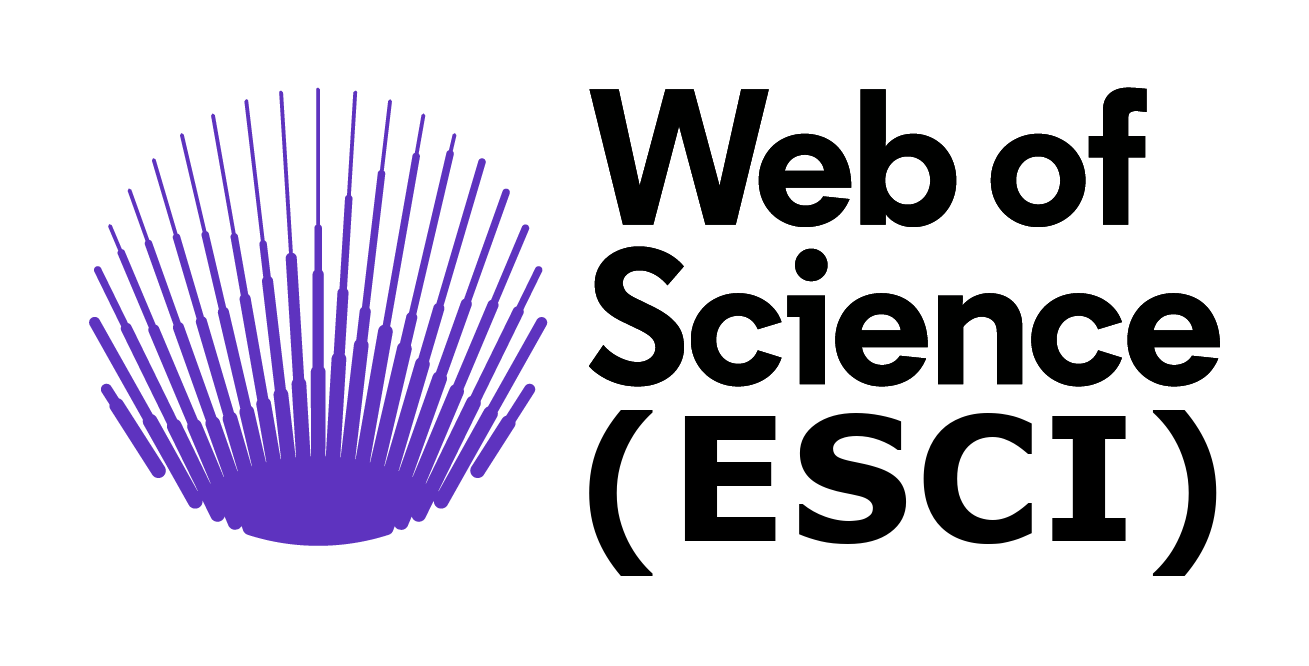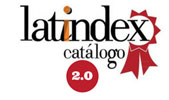Reconstrucción del patrón de consumo eléctrico a partir de Big Data mediante técnica de MapReduce
DOI:
https://doi.org/10.29019/enfoqueute.v9n1.220Palabras clave:
big data, mapreduce, sistema de gestión de datos medidos, red eléctrica inteligente, medición inteligente.Resumen
El trabajo presenta el rendimiento de la técnica de MapReduce para reconstruir la curva de carga a partir de una cantidad de información previamente almacenada proveniente de medición inteligente de energía eléctrica y considerada en la actualidad como Big Data. La gestión de información en la etapa de una red eléctrica inteligente considerada como Sistema de Gestión de Datos Medidos o MDMS necesita reducir los tiempos respecto de los reportes que se requieran en un determinado instante para toma de decisiones en relación a la respuesta de la demanda eléctrica. Por lo tanto, este trabajo propone el uso de MapReduce como técnica para conseguir información de la curva de carga en un tiempo adecuado para obtener tendencias y estadísticas relacionadas con el patrón de consumo eléctrico residencial.
Descargas
Referencias
Ahmed, H. (2014). Applying Big Data Analytics for Energy Efficiency. Master’s Programme in International Design Business Management Hussnain, 85.
Arian, M., Ameli, M., Soleimani, V., & Ghazalizadeh, S. Intelligent migration from smart metering to smart grid, 2 2011 IEEE Power Engineering and Automation Conference § (2011). IEEE. https://doi.org/10.1109/PEAM.2011.6134995
Campaña, M., Inga, E., & Hincapié, R. (2017). Optimal placement of universal data aggregation points for smart electric metering based on hybrid wireless. In CEUR Workshop Proceedings (Vol. 1950).
Chihoub, H., & Collet, C. (2016). A Scalability Comparison Study of Data Management Approaches for Smart Metering Systems. 2016 45th International Conference on Parallel Processing (ICPP), 474–483. https://doi.org/10.1109/ICPP.2016.61
Dai, J., Chai, B., Qiu, H., Zhang, B., & Jiang, W. (2016). Probabilistic graphical model based residential energy behavioral analysis on hybrid computing platform. 2016 China International Conference on Electricity Distribution (CICED), (Ciced), 1–4. https://doi.org/10.1109/CICED.2016.7576328
Fanibhare, V., & Dahake, V. (2016). SmartGrids: MapReduce framework using Hadoop. 3rd International Conference on Signal Processing and Integrated Networks, SPIN 2016, 400–405. https://doi.org/10.1109/SPIN.2016.7566727
Grolinger, K., Capretz, M. A. M., & Seewald, L. (2016). Energy consumption prediction with big data: Balancing prediction accuracy and computational resources. Proceedings - 2016 IEEE International Congress on Big Data, BigData Congress 2016, 157–164. https://doi.org/10.1109/BigDataCongress.2016.27
Grolinger, K., Hayes, M., Higashino, W. a., L’Heureux, A., Allison, D. S., & Capretz, M. a. M. (2014). Challenges for MapReduce in Big Data. Proc. of the SERVICES - IEEE World Congress on Services, (Services), 182–189. https://doi.org/10.1109/SERVICES.2014.41
Han, W., & Yang, X. (2016). Security, Privacy, and Anonymity in Computation, Communication, and Storage. Springer, 10066(March 2017), 1–11. https://doi.org/10.1007/978-3-319-49148-6
Inga-Ortega, E., Peralta-Sevilla, A., Hincapie, R. C., Amaya, F., & Tafur Monroy, I. (2015). Optimal dimensioning of FiWi networks over advanced metering infrastructure for the smart grid. 2015 IEEE PES Innovative Smart Grid Technologies Latin America (ISGT LATAM), 30–35. https://doi.org/10.1109/ISGT-LA.2015.7381125
Inga-ortega, J., Inga-ortega, E., & Gómez, C. (2017). Electrical Load Curve Reconstruction required for Demand Response using Compressed Sensing Techniques. IEEE PES Innovative Smart Grid Technologies Conference - Latin America (ISGT Latin America).
Inga, E., Céspedes, S., Hincapié, R., & Cárdenas, A. (2017). Scalable Route Map for Advanced Metering Infrastructure Based on Optimal Routing of Wireless Heterogeneous Networks. IEEE Wireless Communications, (April), 1–8. https://doi.org/10.1109/MWC.2017.1600255
Inga, E., & Hincapié, R. (2016). Matched Channel Allocation for Advanced Metering Infrastructure based on Cognitive Mobile Virtual Network Operator. Latin America Transactions, IEEE (Revista IEEE America Latina), 14(4), 1780–1785.
Inga, J., Inga, E., Hincapié, R., & Cristina, G. (2017). Optimal Planning for Deployment of FiWi Networks based on Hybrid Heuristic Process. Latin America Transactions, IEEE (Revista IEEE America Latina), 15(9), 1684–1690. https://doi.org/10.1109/TLA.2017.8015053
Inga, J., Inga, E., Hincapié, R., & Gómez, C. (2016). Evaluación de la Infraestructura de Medición y la Respuesta de la Demanda. Revista Técnica Energía, (12), 262–269.
Lang, W., & Patel, J. M. (2010). Energy management for MapReduce clusters. Proceedings of the VLDB Endowment, 3, 129–139. https://doi.org/10.14778/1920841.1920862
Lichtensteiger, B., Bjelajac, B., Müller, C., & Wietfeld, C. (2010). RF Mesh Systems for Smart Metering: System Architecture and Performance. Smart Grid Communications (SmartGridComm), 2010 First IEEE International Conference on, 379–384. https://doi.org/10.1109/SMARTGRID.2010.5622071
Liu, R., Kuo, C., Yang, C., Chen, S., & Liu, J. (2016). On Construction of an Energy Monitoring Service Using Big Data Technology for Smart Campus. 2016 7th International Conference on Cloud Computing and Big Data, 81–86. https://doi.org/10.1109/CCBD.2016.66
Liu, X., Golab, L., Golab, W., & Ilyas, I. F. (2015). Benchmarking Smart Meter Data Analytics. Proceedings of the 18th International Conference on Extending Database Technology, 385–396. https://doi.org/10.5441/002/edbt.2015.34
Mashayekhy, L., Mashayekhy, L., Member, S., Nejad, M. M., & Member, S. (2015). Energy-Aware Scheduling of MapReduce Jobs for Big Data Applications Energy-aware Scheduling of MapReduce Jobs for Big Data Applications. IEEE TRANSACTIONS ON PARALLEL AND DISTRIBUTED SYSTEMS, XX(September), 1–14. https://doi.org/10.1109/TPDS.2014.2358556
Munshi, A. A., & Mohamed, Y. A.-R. I. (2017). Big data framework for analytics in smart grids. Electric Power Systems Research, 151, 369–380. https://doi.org/10.1016/j.epsr.2017.06.006
Networks, U. P. (2017). LONDON DATASTORE. Retrieved from https://data.london.gov.uk/dataset?format=csv
Nghiem, P. P., & Figueira, S. M. (2016). Towards efficient resource provisioning in MapReduce. Journal of Parallel and Distributed Computing, 95, 29–41. https://doi.org/10.1016/j.jpdc.2016.04.001
Peralta, A., Inga, E., & Hincapié, R. (2015). FiWi Network Planning for Smart Metering Based on Multistage Stochastic Programming. Latin America Transactions, IEEE (Revista IEEE America Latina), 13(12), 3838–3843. https://doi.org/10.1109/TLA.2015.7404917
Peralta, A., Inga, E., & Hincapié, R. (2017). Optimal Scalability of FiWi Networks Based on Multistage Stochastic Programming and Policies. Journal of Optical Communications and Networking, 9(12), 1172. https://doi.org/10.1364/JOCN.9.001172
Selamat, A. (2016). Distributed Computing and Artificial Intelligence, 13th International Conference. (Springer, Ed.) (Springer, Vol. 474). Springer. https://doi.org/10.1007/978-3-319-40162-1
Shi, Y., Zhang, K., Cui, L., Liu, L., Zheng, Y., Zhang, S., & Yu, H. (2016). MapReduce short jobs optimization based on resource reuse. Microprocessors and Microsystems, 47, 178–187. https://doi.org/10.1016/j.micpro.2016.05.007
Sieverts, P., & Systems, E. (2015). Streamlining Smart Meter Data Analytics. Technical University Od Denmark.
Vaccaro, A., Troiano, L., Vaccaro, A., & Vitelli, M. C. (2016). On-line smart grids optimization by case-based reasoning on big data On-line Smart Grids Optimization by Case-Based Reasoning on Big Data. 2016 IEEE Workshop on Environmental, Energy, and Structural Monitoring Systems (EESMS), (September), 1–6. https://doi.org/10.1109/EESMS.2016.7504842
Wan, Z., Wang, G., Yang, Y., & Shi, S. (2014). SKM: Scalable Key Management for Advanced Metering Infrastructure in Smart Grids. IEEE Transactions on Industrial Electronics, 61(12), 7055–7066. https://doi.org/10.1109/TIE.2014.2331014
Wang, J. (2014). Frontiers in Algorithmics. (Springer, Ed.) (Springer). Springer. https://doi.org/10.1007/978-3-319-19647-3
Yildiz, O., Ibrahim, S., Phuong, T. A., & Antoniu, G. (2015). Chronos: Failure-aware scheduling in shared Hadoop clusters. Proceedings - 2015 IEEE International Conference on Big Data, IEEE Big Data 2015, 313–318. https://doi.org/10.1109/BigData.2015.7363770
Zhang, B. (2017). Analysis of residential electricity consumption behavior based on the improved Apriori algorithm. In C. P. L. : C. Press (Ed.), Electromechanical Control Technology and Transportation : Proceedings of the 2nd International Conference on Electromechanical Control Technology and Transportation (ICECTT 2017) (1st ed., pp. 145–149). Zhuhai, China: CRC Press LLC : CRC Press.
Zhou, J., Hu, R. Q., & Qian, Y. (2012). Scalable distributed communication architectures to support advanced metering infrastructure in smart grid. Parallel and Distributed Systems, IEEE Transactions on, 23(9), 1632–1642. https://doi.org/10.1109/TPDS.2012.53
Publicado
Número
Sección
Licencia
Los autores retienen todos sus derechos (© copyright).
- Los autores retienen sus derechos de marca y patente, y también sobre cualquier proceso o procedimiento descrito en el artículo.
- Los autores retienen el derecho de compartir, copiar, distribuir, ejecutar y comunicar públicamente el artículo publicado en Enfoque UTE (por ejemplo, colocarlo en un repositorio institucional o publicarlo en un libro), siempre que se dé el reconocimiento de su publicación inicial en la revista Enfoque UTE.
- Los autores retienen el derecho a hacer una posterior publicación de su trabajo, de utilizar el artículo o cualquier parte de aquel (por ejemplo: una compilación de sus trabajos, notas para conferencias, tesis, o para un libro), siempre que indiquen la fuente de publicación (autores del trabajo, revista, volumen, número y fecha).
























